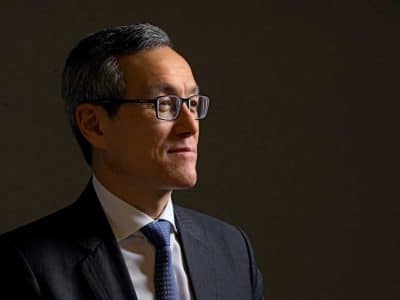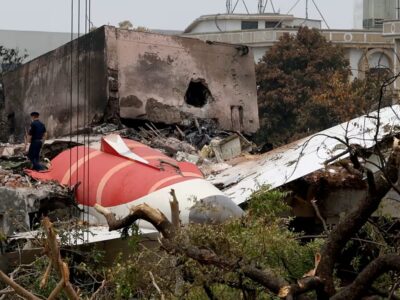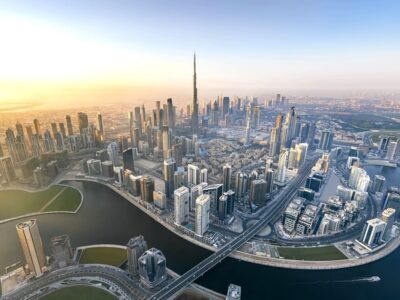After the failure of the Copenhagen conference, all eyes were on Abu Dhabi recently for the third World Future Energy Summit.
The third World Future Energy Summit was held in Abu Dhabi, UAE in January and once again the top utility companies attended in their droves. Following the recent disappointment of the Copenhagen Climate Conference, the objectives of the Summit were under much more scrutiny than in its previous editions.
Despite the calls for action from the renewable energy community, the Summit was one of few major announcements. While joint venture agreements were signed and refinancing deals were inked, there was little to make people believe that the renewable energy sector had gotten over the recent fiascos involving leaked scientist’s emails and the weak outcome of the Copenhagen conference.
One of the major talking points of the show was the imminent arrival of nuclear power in the UAE. Mohammed Al Hamli, UAE Energy Minister said that the speed of the UAE’s growth in terms of its economy and population means that it has had to look at alternative sources of energy to hydrocarbons.
“The UAE firmly believes that nuclear power represents an important clean energy source that should be developed along with other clean fuels.” Hamli said.
“Our aim is for nuclear energy to provide eventually 25% of the UAE’s power requirements. We believe that the best way of securing a sustainable economic future in a carbon constrained world is to develop a balanced portfolio of clean energy sources in which nuclear, renewable energy, oil and natural gas all have a role to play,” he added.
There was a strong presence from the International Renewable Energy Agency (IRENA), following the announcement that the organisation will be based in the UAE. “Small as it is, the UAE will not shrink from this responsibility, this Summit will hear multiple examples of just how the UAE is carving out for itself a role as a future energy centre,” Hamli said.The host of the Summit, Masdar, once again was involved in the majority of the business conducted. Siemens, which boasted a large involvement in the show, revealed it is to invest US$50mn into the DB Masdar Clean Tech Fund. The company also revealed it was looking to secure a number of contracts within Masdar City.
Masdar also insisted the first phase of Masdar City remains on schedule for 2013.
One topic of the summit was how the economic crisis had affected the projects of Masdar, although in the opening session of the conference, the firm was quick to dismiss any fears. Masdar CEO Dr Sultan Ahmed Al Jaber told the opening session of the event that despite the “time of economic concern” he was confident that “renewable energy retains its relevance and continues to make absolute sense”.
He added: “With the world population going to 9 billion by 2050 and energy demand doubling, we cannot afford to falter, the time is now, it is our responsibility and our duty to share our energy.”
Also speaking at the opening session, Mohamed Nasheed, President of the Maldives, said Abu Dhabi represents the future, and revealed his country was looking to learn from the Emirate.
“The UAE is jettisoning the past and embracing change. I am here to learn about your pioneering work in renewable energy and carbon neutrality. It is easy to become despondent but I remain optimistic…the smart money is green money.”
The subject of ‘green money’ was also high on the agenda, with one of the biggest announcements of the Summit revolving around a huge loan granted to a joint venture between Masdar and the Spanish company Sener. The firms secured $760 million in loans for a $1 billion concentrated solar plant. The JV, Torresol Energy, will use the money to build two 50 megawatt (MW) concentrated solar projects called Valle 1 and Valle 2 in Andalusia in southern Spain. Conditions for raising financing had improved since last year but were still tough, said Jose Morales, chief financial officer for Sener.
While the best interests of the planet are undoubtedly at the heart of the WFES, organisers and participants will no doubt have walked away from this event with a slight sense of anticlimax. The momentum built up from the previous two years of the Summit appeared to slow considerably this year. Fewer agreements were made and progress seemed to have been hindered by financial matters.
The past six months have been tough for the renewable energy sector for a number of reasons and this seems to have had a big impact on the WFES. Technology continues to come on leaps and bounds and there were some genuinely impressive products on show. But for the first time renewable energy has been dealt a significant PR blow, and it’s one it will have to shake off sooner rather than later if it is to be considered a viable option to replace fossil fuels.
The World Future Energy Summit of 2011 will need to bounce back strongly in order to renew hope in this vital sector.






